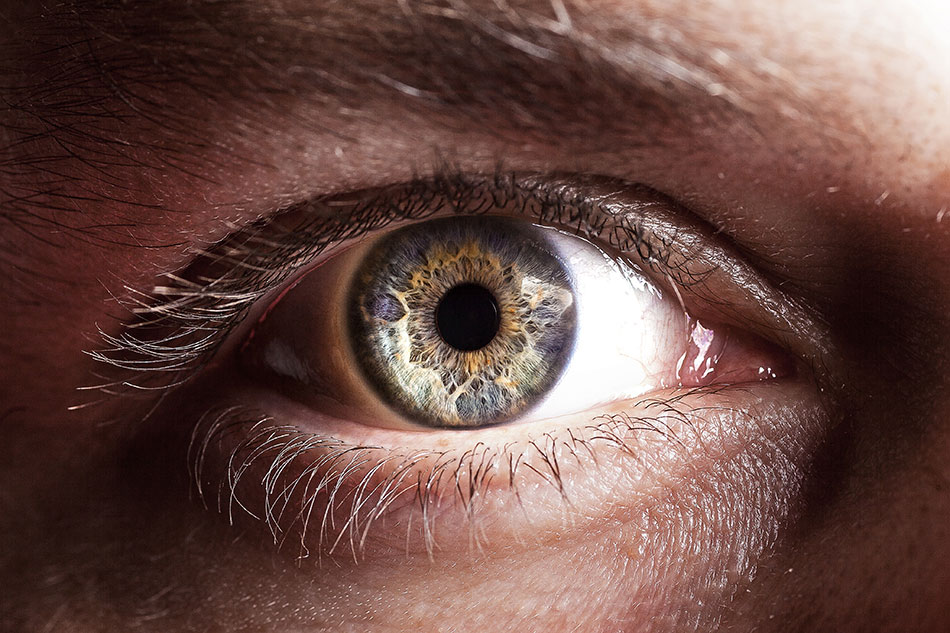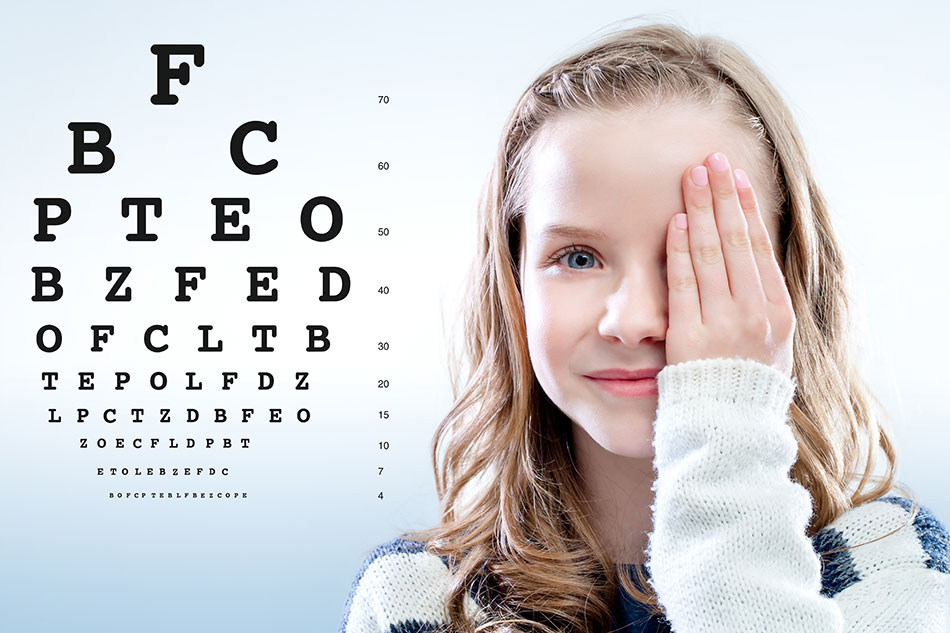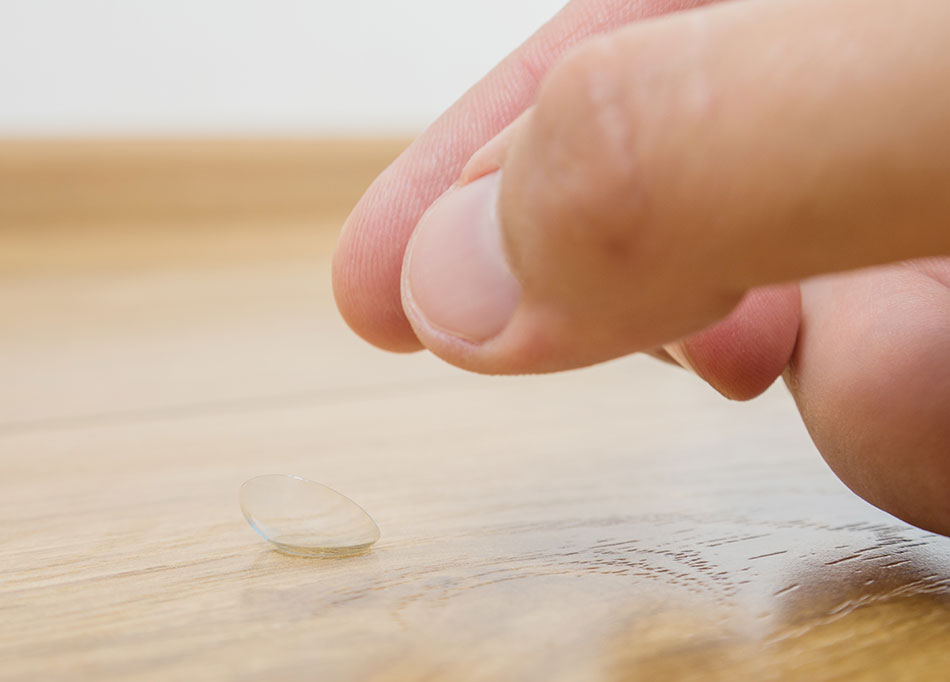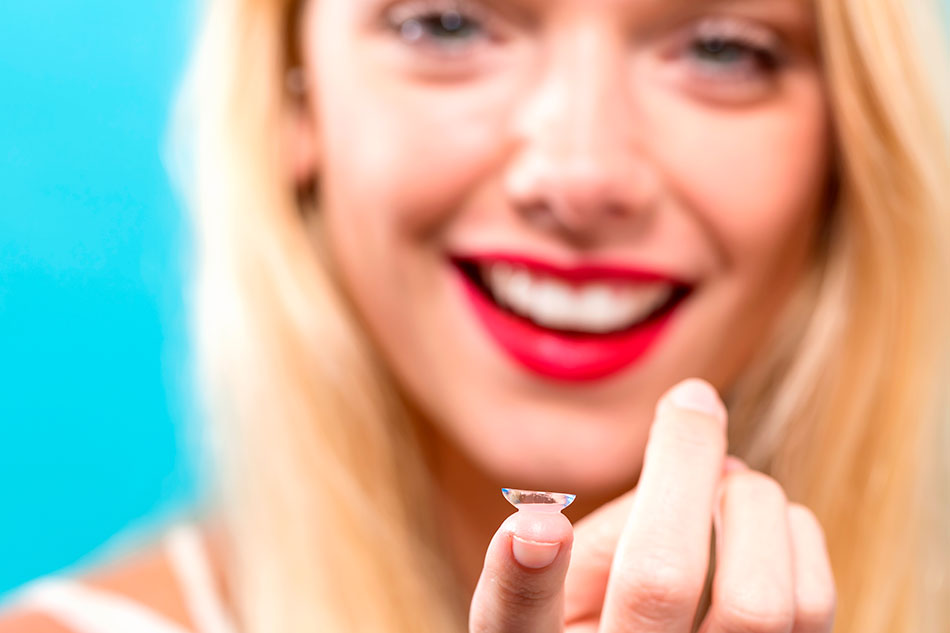Can a Contact Get Lost in Your Eye? 10 Common Contact Myths Debunked

Can a contact get lost in your eye? Is it bad to swim in your contacts? Am I too young to start wearing contact lenses?
If you're thinking about making the transition to contact lenses, you may be wondering about the above questions and more. Once we debunk some of these common contact myths, you'll be ready to join the millions of people who currently wear them.
Wearing contact lenses is a lot less scary if you know how to tell contact truth from fiction. Here, we'll break down everything you need to know so you can make the leap to contact lenses! Let's tackle the scariest questions first.
Can a Contact Get Lost in Your Eye?
One of the greatest fears of first-time contact lens wearers is the thought that a lens might get lost. Just thinking about having a little piece of plastic lost in your eye forever is terrifying. But fortunately, there's absolutely no truth to this contact lens myth. A quick eye anatomy lesson will clear up your worries.
Your eyes have a thin membrane called the conjunctiva. It covers the whites of your eyes and connects to the inside of your eyelids. Your contact lens can't get lost behind your eye, because the conjunctiva will block it before it can get back there.
When your lens slips into the top, bottom, or sides of the eye, it can seem concerning, especially if you can't see the lens anymore. But it will come out. All you need to do is keep blinking until you can put the lens back into the right place and take it out.
Can a Contact Get Stuck in Your Eyelid?

Because of the conjunctiva, the contact can't get behind the eye. But can it get stuck in your eyelid? It is possible to get a contact trapped behind the eyelid, but again, it won't stay there forever. To get the lens unstuck, move your eye opposite of where the lens seems to be. If the lens gets trapped in the bottom lid, look up. This will help move the lens across the eye.
You can also give the eyelid a gentle massage to help the contact lens along. Don't forget to blink regularly -- moisture helps move the lens.
Do You Have to Be a Certain Age for Contacts?

You're technically never too young or too old to wear contacts. Even for children, contact lenses are perfectly safe, as long as you follow the safety and cleanliness guidelines. No matter how old you are, if you want to start wearing contacts, you can! The same guidelines apply to every contact lens wearer.
Can Contacts Touch Water?
Is it safe to swim with your contacts on? The answer is no. Bacteria and other dangerous microbes live in all kinds of water, including tap. If bacteria gets on your contacts, it can start to damage your eye before you realize it.
If you absolutely have to get in the water with contacts on, shut your eyes so less water can get in. However, it's always best to take out your contacts before getting wet, even if you're just going to take a shower.
How about using water to moisten your contacts? Again, the answer is no, even if the water is safe and filtered. The only thing you should use to clean and rewet your contacts is saline solution. When contacts come into contact with tap water, they soak up too much of the water and swell up. Even if it’s filtered water, there's also a risk that microbes can get into your eyes.
However, even if there aren't any microbes, the water-swollen lens won't fit your eye properly. This can cause little breaks in the surface of your eye where contaminants can enter. Never store or wet your contacts with any kind of water.
Are Contacts More Expensive Than Glasses?

Contact lenses don't actually have to cost more than glasses. It all depends on the type and brand that you buy. Many high-quality brands are very affordable today.
With daily disposables, weekly, and monthly options, there are variations in price, but there are other things to consider as well. If you are using weekly or monthly contacts, you will require lens cases and cleaning solution. While those can be added expenses, often, the contacts themselves can be less costly than daily contacts. That can offset the amount spent on additional cleaning items.
Are Contact Lenses Hard to Use?
It's true that contact lenses are difficult to use at first. But just as with any new skill, practice makes perfect. After you get past the initial learning curve, wearing contacts will be an easy part of your daily routine.
Your eye doctor will help teach you how to properly insert and remove your contacts. Don't get frustrated by the initial difficulty. You'll definitely face some struggles and a few lost contacts. However, everyone can learn to wear contacts, so don't give up.
Do Contacts Fall Out?

The old, hard styles of contact lenses were notorious for falling out and getting lost. But today's soft contacts will easily stay in your eyes all day, even if you’re active or playing sports. The only time they might fall out is if your eyes are irritated, or if you rub your eyes. But in those cases, you should take your contacts out anyway. Wearing daily contacts is a great way to ensure you can take out your irritated lenses without worrying about cost.
Are Contact Lenses Dangerous?
The long list of warnings about contacts might make you nervous. However, your eye doctor will give you rules and warnings to keep you safe. As long as you follow the rules, there's absolutely no danger in wearing contact lenses. And after you've worn them for a few months, you'll know all the rules about wearing contacts without even thinking about it.
Ready to Make the Change to Contacts?

"Can a contact get lost in your eye?" is one question your friends might ask you after they're done admiring how you look in your new lenses. Now, you can proudly answer them no, while sporting a brand-new, glasses-free look.
Now that we’ve cleared up some of those myths, are you ready for your contact lenses?